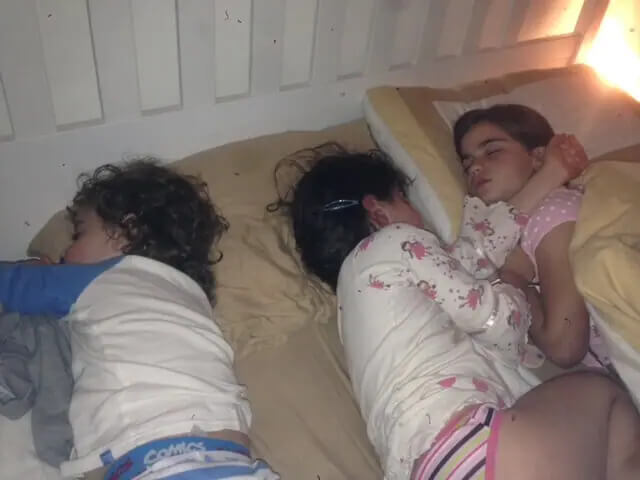
Do antibiotics cause weakness?
On average, once a week I receive a message from a family at my clinic, to inform me that the child (or parent) who is receiving antibiotics because of infection X is feeling “weak”. And the next question that comes up is always “do antibiotics cause weakness?”
So, is this another one of those false beliefs or is there some truth to it? What really happens to our bodies when we are on antibiotics?
Find out below!
Short term side effects caused by antibiotic treatment
You see, just like any other medication, antibiotics too have immediate side effects, mainly allergic reactions or reactions related to the gastrointestinal system. Nausea, abdominal pain and diarrhea can all certainly be related to the use of antibiotics, especially some specific antibiotics.
But the child is experiencing weakness, is that not because of the antibiotics?
Let us take an example.
Moisheh received antibiotics following the correct diagnosis of pneumonia, following four days of fever and cough. The fever resolved one day after he started taking the antibiotics. Perfect, that means we hit the target with the correct choice of treatment.
But the child is still coughing – well, that makes sense when you’ve had pneumonia.
And he’s feeling weak. Well, of course he’s feeling weak. He is recovering from a difficult infectious disease, one that used to cause death in about 20% of people who developed it prior to the introduction of antibiotics.
Sometimes the weakness and fatigue occur following the onset of treatment, especially in the first day or two, and following those two days the child starts recovering and feeling an improvement in energy levels and fatigue.
Therefore, in most cases, it is not the antibiotics that cause the weakness, rather it is the recovery from the difficult infection.
But because the antibiotics cause weakness, the child will easily catch another virus at daycare, isn’t that right?
We have determined that it is not the antibiotics that cause weakness, but rather the recovery from the infection that led to the administration of antibiotics.
Obviously, someone who is recovering from infection X is at higher risk of developing infection Y. However, it is not because of the use of antibiotics. Find out more in the chapter on this website that discusses when a child can go back to daycare or their educational institution following an infectious disease, in the following link.
When should we see a doctor?
You see, many different illnesses carry potential complications that could cause a child not to recover following the start of adequate treatment.
All the way from an inflammation of the heart muscle, which can be caused by all the different infectious diseases, to inflammation in muscles (myositis) which can be caused by all the different viruses, mainly influenza.
So, if the child’s condition seems to be improving form day to day, and if it doesn’t linger for too long following the infection, and if the child’s general well-being is okay, and he is able to function well, I would gather that they are recovering well.
If the signs persist for more than a few days, if the fatigue is extreme and especially if no improvement is seen, I would suggest seeing a physician from a medical assessment.
In summary, I hope I can send this short chapter to the parents that send me messages telling me that their child is experiencing weakness because they are receiving antibiotics. So generally, it is not the antibiotics that cause weakness, but rather the infection that the child is recovering from.
Keep an eye on your child and follow them closely.
Good luck!
For comments and questions, please register
